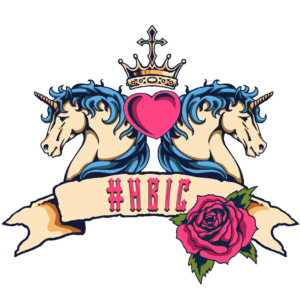 This post is part of an ongoing series for HBIC Nation, a community that helps creatives learn, grow, and dominate in their fields. Our motto is Dream. Do. Dominate. You can find out more by going to HBICnation.com or joining the HBIC Nation Facebook Group.
I recently transitioned from working a full-time day job and writing on contract for a publisher to writing full-time. I’ve been dreaming for years about making this jump. I figured I’d wake up, roll out of bed, and the words would just flow. If my fantasy was a formula, it would look like this:
This post is part of an ongoing series for HBIC Nation, a community that helps creatives learn, grow, and dominate in their fields. Our motto is Dream. Do. Dominate. You can find out more by going to HBICnation.com or joining the HBIC Nation Facebook Group.
I recently transitioned from working a full-time day job and writing on contract for a publisher to writing full-time. I’ve been dreaming for years about making this jump. I figured I’d wake up, roll out of bed, and the words would just flow. If my fantasy was a formula, it would look like this:
All the time in the world + Writing full-time + Dream fulfilled = All the books in the land
Wasn’t I adorably naïve?
Instead of being the writer utopia I’d imagined, all of this uninterrupted time was daunting. In the past, my day job forced me to be extra disciplined and protective of my writing hours. I was getting stuff done before because, ironically, I had so little time in which to do it. It turns out that for me the formula looked like this:
No time + Deadlines + Stubborn determination = 4 books a year
Obviously, I was happy that I had one focus in my professional life instead of two, but without the structure of a demanding schedule I was feeling lost. I was too unstructured.
Fortunately, I have lots of creative around me who don’t work traditional day jobs. Instead, they create their own schedules that work at the pace of their own artistic flow and — this part is key — still get the work done.
I reached out and got a lot of great advice from women who’d made this jump before me, including from HBIC members Alexandra Haughton and Tamsen Parker. Then I took a step back to assess my own working habits and came up with these things that have been working for me.
Survey Your Week
I’m going to come right out and admit that I’m not great at future planning. At least not long, long-term future planning. However, what I am good at and find incredibly helpful is looking at the week ahead.
Every Sunday I sit down with my bullet journal and brain dump a list onto a piece of paper. I write down my appointments, important emails and calls, and every project that I know I need to get done next week.
Here’s a sample list of things I jotted down on my weekly to do list:
• Email London networking contact • Finish The Taste of Temptation draft • Make notes on Patreon • Dinner with Maegan, Tuesday • Agent/Editor lunch, Thursday • Podcast interview, Friday • Pick up dry cleaning • Long run • Cancel cable
See what I mean about brain dump?
One thing I don’t do is write down every little step to get those projects done. Finish The Taste of Temptation draft could look like this: finish hero realization scene, write grand gesture scene, write epilogue, finish transitional heroine scene you neglected to write because you got excited about other things. That, however, doesn’t help me see the big picture for the week. The nitty gritty details? Those are more likely to cloud up my view. Apparently I’m exactly who that seeing the forest through the trees adage is about
Make a Daily List and Make It Early
Once I’ve got a weekly list (which I make on Sunday nights), I get down to my big organizational tool: day-to-day task lists. The night before I start writing down everything I need to do the next day. Monday gets planned on Sunday night, Tuesday gets planned on Monday night, and so on. I do this because it helps me shut off my brain and keeps me from working 16 hour days. If there’s a to do list for tomorrow, those things can get done tomorrow.
This day-to-day list is where those nitty gritty tasks I avoid putting on my weekly list become helpful. They keep me on task and help break big projects down into actionable steps.
I’ve also found it to be helpful to sometimes write out a little schedule for myself like so:
7:45 a.m. — Shower, breakfast, morning pages 9 a.m. — Morning writing session 11:30 a.m. — Run errands, lunch 1 p.m. — Afternoon writing session 5 p.m. — Email catch-up 5:30 p.m. — Run
3 Daily Goals
If you haven’t noticed yet, I’m a lister. I put everything on lists, and that sometimes makes it hard to figure out what absolutely needs to get done and what can potentially get pushed to another day. Because of that, I like to highlight the three biggest things that must get done on a given day. I literally write a 1, 2, 3 next to them to mark that they’re my priorities, but you can use this prompt to help you organize:
Today I Will: 1) ____________________
2) ____________________
3) ____________________
If those three tasks get done, the day’s a win for me. (Don’t we all need little wins for motivation?)
Make Time for Admin — And Keep It
Admin has been a huge pain point for me for a long time. The problem isn’t so much sending emails, writing blog posts, and social media. It’s getting myself to stop once I start. There’s always one more thing that I could be doing. One more newsletter draft. One more Facebook post. One more tweet. It’s enough to make an HBIC want to pull her hair out.
I’ve started to think about admin like I think about my writing time. I build out space in my week for it and I protect it fiercely. However, I’d say I go one step further when I work on admin during the predetermined time because I’m protecting the rest of my life from it creeping out and taking over everything.
On Sundays I’ll go into my CoSchedule app — an expensive but worth-it-to-me content marketing tool — and set up my blog posts, tweets, Facebook posts, and Instagrams for the week. If I have a newsletter I’ve got to send that week, I’ll make sure that’s ready to go and scheduled in MailChimp. I’ll fill up my Buffer with snazzy content from friends and make sure I’ve got some things ready to go if people I know have launches or book sales during the upcoming week.
Then, after all that is done, I close CoSchedule and walk away. Other than making sure that my content is going out into the world, I try not to open it again. I’ll jump on Facebook and Twitter from time to time, but that’s mostly for interaction and catching up on everyone’s news rather than promoting my content. The temptation to cut into writing is just too great. All of this content creation is supposed to serve the writing, not hinder it by taking excessive time and mental energy away from me.
I’m still learning my own best practices for working as a creative full time, and would love to hear what works for you whether you’re working on a side hustle or your art is your full time gig! Leave me a comment or shoot me an email at julia@juliakellywrites.com, and be sure to check out HBICnation.com.

